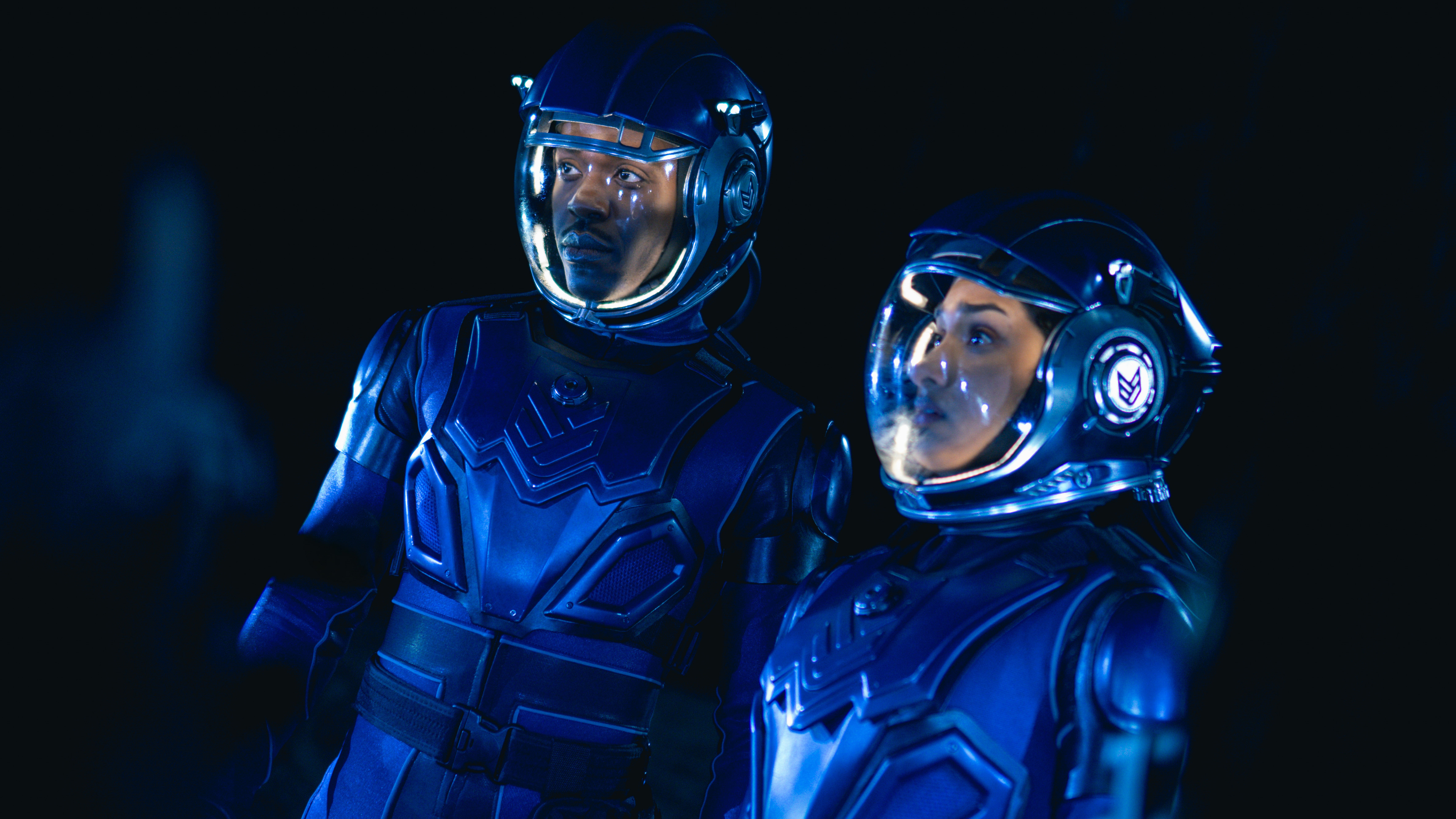The evolution of Scorpion and Sub-Zero
Two ninjas, 19 years of Mortal Kombat, and one shared destiny

Liu Kang might be the nominal “hero” of Mortal Kombat, but to fans, the yowling Bruce Lee clone has never really been the star. That honor is instead shared between a pair of palette-swapped badasses whose bloody moves and ever-evolving feud instantly defined Mortal Kombat as a franchise – and continued to do so for 19 years.
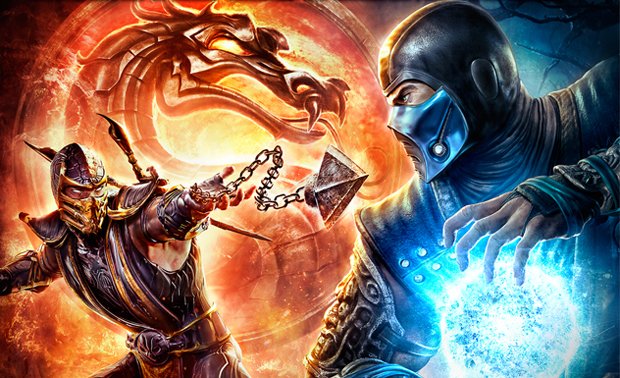
Scorpion and Sub-Zero began as more or less the same character, with only their different special moves and shared supernatural-revenge backstory to set them apart. They’ve since become much more, however, and with next week’s sequel/reboot about to knock them both back to square one, let’s take a look at how far they’ve come since the first time we saw them.
Mortal Kombat (1992)
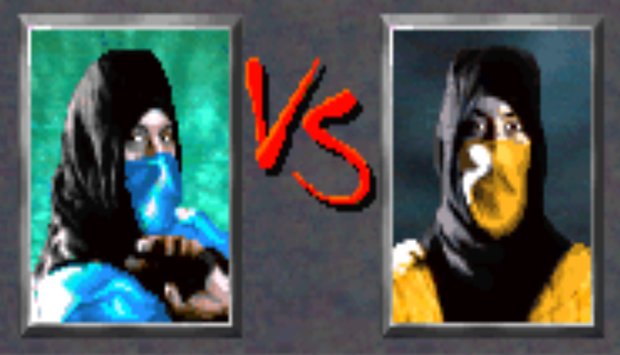
When Mortal Kombat began, Scorpion and Sub-Zero looked like what you’d get if you asked a seven-year-old boy to design his ideal ninjas: a pair of baggy doofuses in bright primary colors, with names that were less “ninja” and more “G.I. Joe.” Scorpion was the yellow one, who kept one arm cocked back behind his head, while Sub-Zero was the blue one who kept one arm guarding his chest.
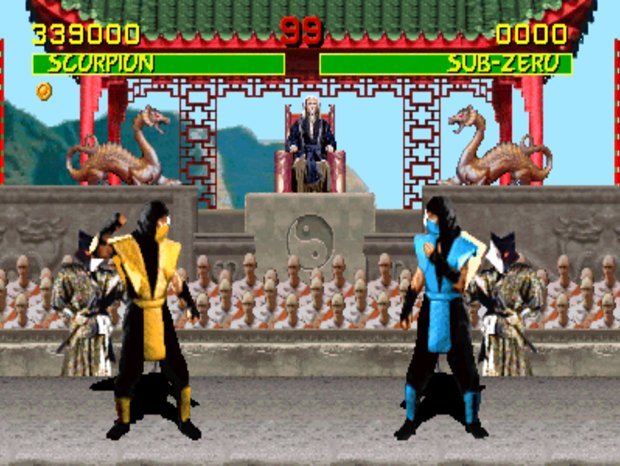
But they had the moves to back up their ninja status, with Scorpion packing not only a teleporting suckerpunch, but also a nasty harpoon and a signature catchphrase.
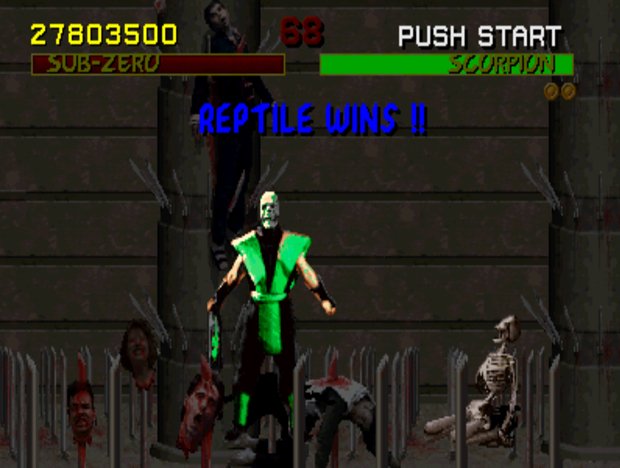
Above: “Get over here!”
Sub-Zero, meanwhile, had an anemic slide-kick move and, more significantly, the ability to freeze his opponents with something that was like Street Fighter’s familiar Hadouken, but much more useful:
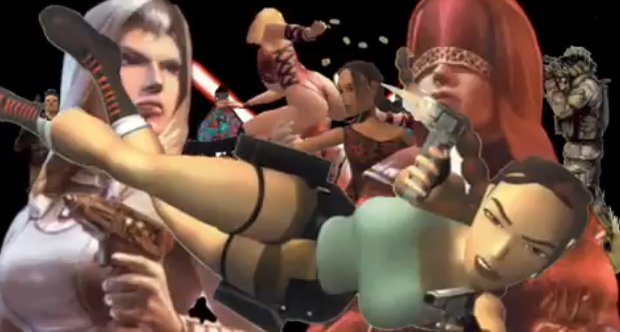
If you got too enthusiastic with it and tried to double-freeze your opponent, however, the result was the dreaded “double ice backfire,” which would not only free your opponent, but freeze you instead.
Sign up to the GamesRadar+ Newsletter
Weekly digests, tales from the communities you love, and more
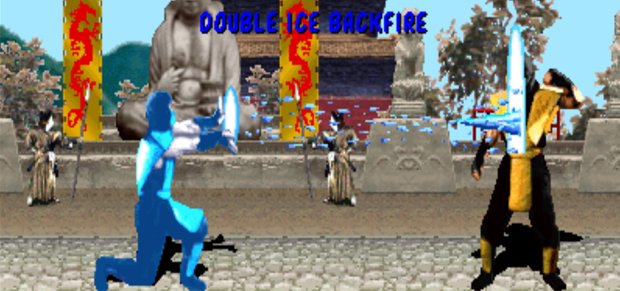

The ability to temporarily immobilize an opponent was a big deal in early-‘90s arcades (as evidenced by the number of Street Fighter fans who crashed machines trying to pull off Guile’s infamous “handcuffs”), and the fact that Scorpion and Sub-Zero could do it so effortlessly made them the instant characters of choice for serious arcade ringrats. It was soon widely acknowledged that if you picked any other character, you were either a formidable expert or there was something wrong with your head.
True, there wasn’t much to differentiate the ninjas (or Lin Kuei, whatever) apart from their stances and special moves (although the same could be said of all the characters in the first MK), but those who paid attention to the story soon learned that there was more to their relationship than the usual “friendly rivals” nonsense so common to Ken/Ryu-inspired duos. Instead, Scorpion was the vengeful ghost of a man Sub-Zero had murdered, reincarnated as a demonic warrior and dressed in a mocking yellow version of Sub-Zero’s outfit. (Apparently he’d also been a ninja in life, although that wasn’t spelled out until later games.)
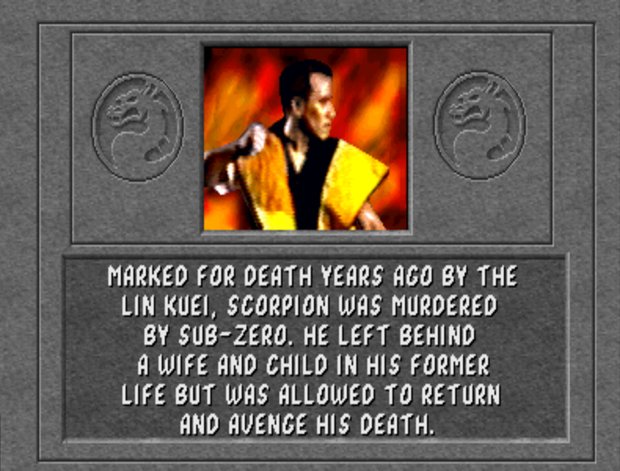
Above: Also he looked a lot like Johnny Cage, which isn’t surprising given they were both played by martial artist Daniel Pesina
Scorpion’s supernatural origins were further revealed by his first Fatality, which saw him whip his hood off to reveal a gleaming skull.
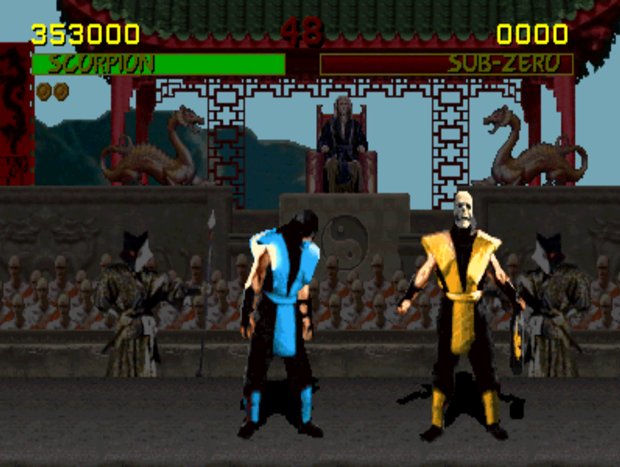
A gleaming, fire-breathing skull.
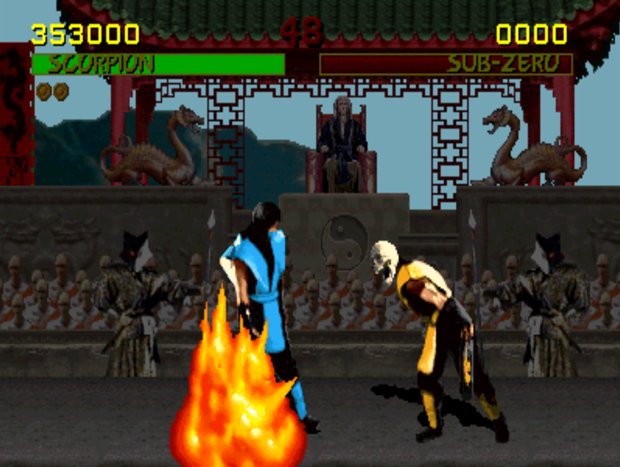
A gleaming, fire-breathing skull that could skeletonize whatever it decided to breathe fire at.
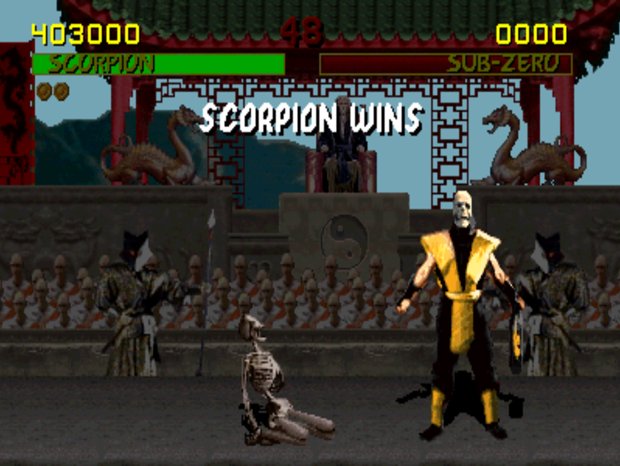
By contrast, Sub-Zero’s fatality was pretty simple, but it nonetheless became infamous enough to help inspire a congressional probe into the pressing issue of videogame violence.
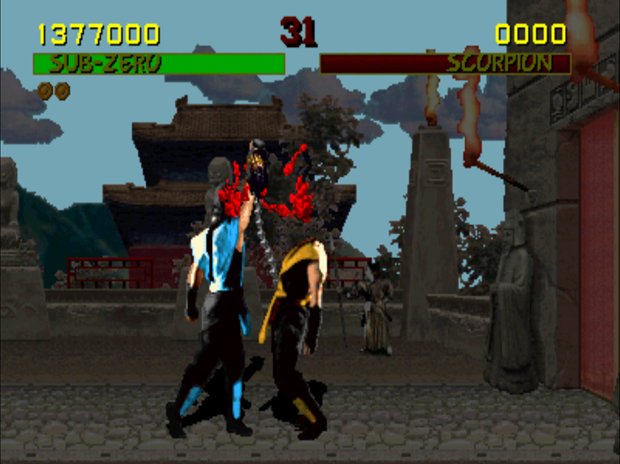
Unsurprisingly, Sub-Zero’s iconic spine-rip was toned down for (most of) the console releases of MK, with the replacements varying from a lame sliding chest-punch on Game Boy to this oddly more appropriate Fatality in the famously neutered SNES version:
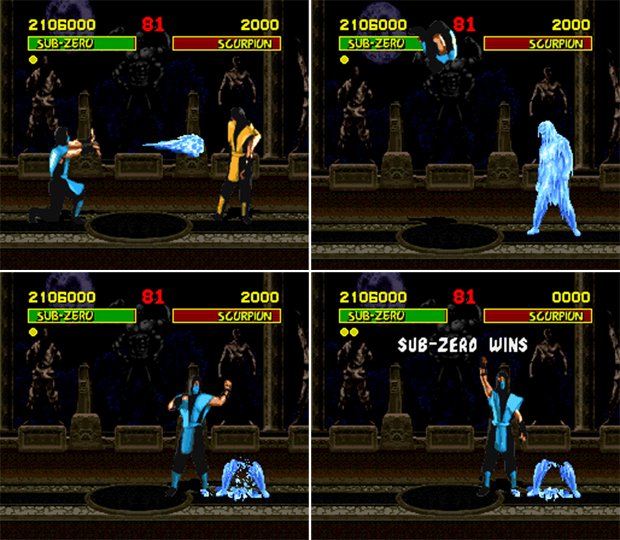
Interestingly, this version of Scorpion was widely perceived as the “good” half of the rival ninja duo, while murderous assassin Sub-Zero was pretty clearly the bad guy (despite having been originally sent to kill Shang Tsung, and despite having inspired one of the greatest songs ever recorded). That perception would change pretty drastically over the next few games, but not before one of the fighters underwent some pretty major changes.



